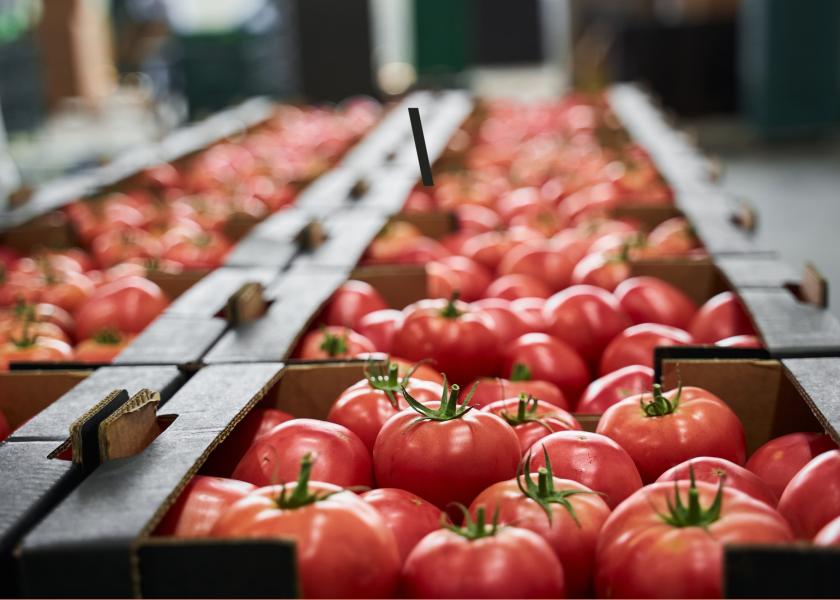FPAA, NatureSweet urge preservation of 2019 Tomato Suspension Agreement

Distributors of Mexican tomatoes are pushing hard to blunt the effort by domestic producers to terminate the 2019 Suspension Agreement between Mexican tomato producers and the U.S. Commerce Department.
The agreement establishes a reference price for Mexican tomatoes.
In September, Michael Schadler, executive vice president of the Florida Tomato Exchange, said there is strong support in the U.S. agricultural community for terminating the Tomato Suspension Agreement and imposing antidumping duties on Mexican tomatoes.
He said over 100 American tomato growers from 13 states have called on the Commerce Department to terminate the Suspension Agreement. This includes tomato growers from Alabama, Arkansas, California, Florida, Georgia, Iowa, Michigan, Minnesota, New Jersey, North Carolina, Pennsylvania, South Carolina and Tennessee.
Termination of the Tomato Suspension Agreement, and the imposition of antidumping duties, will not put any restrictions on the volume of Mexican tomatoes permitted to enter the U.S., Schadler said then.
“Rather, it will only ensure that Mexican tomatoes are sold at fair prices, in accordance with U.S. and international law, as well as the USMCA," he said in September.
In public comments filed recently, the Fresh Produce Association of the Americas, a group of U.S. distributors of Mexican fresh produce, said the Florida Tomato Exchange provides “no plausible explanation” or factual support for why an antidumping order will do a better job than the 2019 Suspension Agreement to address any alleged problems.
“FTE’s comments are more notable for what they did not address than for the rehash of its weak and unsupported attempt to justify its termination request,” the FPAA said in its filing.
Abandoning the reference price under the 2019 Suspension Agreement and imposing antidumping duties will deprive the U.S. tomato market of vine-ripe tomato varieties that the domestic industry does not produce and will destabilize the U.S. tomato market because of increased volatility in pricing, the FPAA said in its comments. “In short, abandoning the 2019 Suspension Agreement and imposing antidumping duties will harm, not help, the domestic industry,” the FPAA said.
The FPAA told The Packer via email that approximately 450 U.S. companies have signed a letter asking that the suspension agreement stay in place.
The FPAA said in its comments that imposing antidumping duties will not:
- Provide the additional agricultural labor needed by domestic tomato growers.
- Prevent catastrophic hurricanes or freezes that endanger domestic crops or stop the oceans from rising that are raising the salinity of domestic growing fields.
- Improve the FTE members’ poor soil and pest conditions.
- Stem the increasing pressure of urbanization and suburbanization encroaching on farmland.
FPAA also said in its comments that the FTE has “totally ignored” the dramatically increased volatility of the U.S. tomato market if antidumping duties are imposed, compared with the stability and certainty provided by the floor Reference Price under the suspension agreement.
Importers will have to deal with lengthy risks of antidumping duties increasing retroactively and paying increased amounts of collateral for surety bonds needed to cover antidumping duty entries, the FPAA said in its comments. “This uncertainty about the ultimate antidumping duty liability will be an accelerant to an increasingly volatile tomato market if the Reference Price system is terminated,” the group said.
NatureSweet weighs in
San Antonio, Texas-based NatureSweet also submitted comments to the U.S. Department of Commerce strongly urging the government to preserve the 2019 Tomato Suspension Agreement, which the company said is critical to ensuring stability and fair practices in the market for fresh tomatoes.
“The suspension agreement is critical to keeping specialty tomato varieties on American grocery store shelves,” Skip Hulett, vice president of general counsel for NatureSweet, said in the release. “Nearly all of the grape and cherry tomatoes consumed by American families come from Mexico, where growing conditions are ideal for year-round production.”







